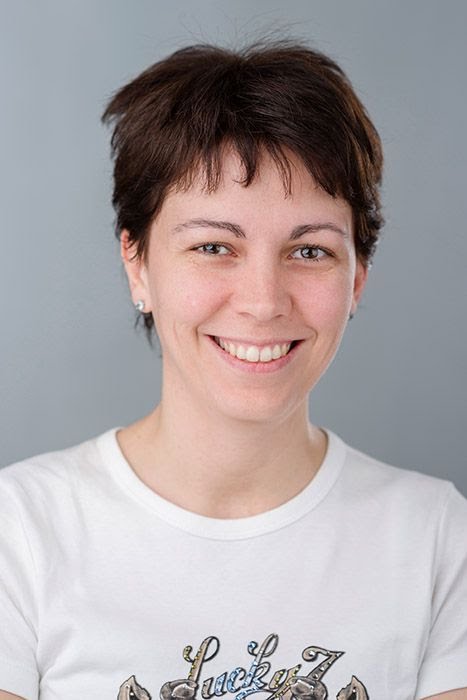Studiare
In questa sezione è possibile reperire le informazioni riguardanti l'organizzazione pratica del corso, lo svolgimento delle attività didattiche, le opportunità formative e i contatti utili durante tutto il percorso di studi, fino al conseguimento del titolo finale.
Calendario accademico
Il calendario accademico riporta le scadenze, gli adempimenti e i periodi rilevanti per la componente studentesca, personale docente e personale dell'Università. Sono inoltre indicate le festività e le chiusure ufficiali dell'Ateneo.
L’anno accademico inizia il 1° ottobre e termina il 30 settembre dell'anno successivo.
Calendario didattico
Il calendario didattico indica i periodi di svolgimento delle attività formative, di sessioni d'esami, di laurea e di chiusura per le festività.
| Periodo | Dal | Al |
|---|---|---|
| primo semestre | 28-set-2015 | 8-gen-2016 |
| Secondo Semestre Magistrali | 22-feb-2016 | 1-giu-2016 |
| Sessione | Dal | Al |
|---|---|---|
| appelli sessione invernale | 11-gen-2016 | 13-feb-2016 |
| appelli sessione estiva | 6-giu-2016 | 9-lug-2016 |
| Appelli sessione autunnale | 29-ago-2016 | 16-set-2016 |
| Sessione | Dal | Al |
|---|---|---|
| sessione autunnale | 11-dic-2015 | 18-dic-2015 |
| sessione invernale | 6-apr-2016 | 8-apr-2016 |
| sessione estiva | 13-set-2016 | 14-set-2016 |
| Periodo | Dal | Al |
|---|---|---|
| vacanze natalizie | 23-dic-2015 | 5-gen-2016 |
| vacanze pasquali | 25-mar-2016 | 29-mar-2016 |
| vacanze estive | 8-ago-2016 | 27-ago-2016 |
Calendario esami
Gli appelli d'esame sono gestiti dalla Unità Operativa Segreteria dei Corsi di Studio Economia.
Per consultazione e iscrizione agli appelli d'esame visita il sistema ESSE3.
Per problemi inerenti allo smarrimento della password di accesso ai servizi on-line si prega di rivolgersi al supporto informatico della Scuola o al servizio recupero credenziali
Docenti
 marcella.veronesi@univr.it
marcella.veronesi@univr.it
Piano Didattico
Il piano didattico è l'elenco degli insegnamenti e delle altre attività formative che devono essere sostenute nel corso della propria carriera universitaria.
Selezionare il piano didattico in base all'anno accademico di iscrizione.
1° Anno
| Insegnamenti | Crediti | TAF | SSD |
|---|
2° Anno Attivato nell'A.A. 2016/2017
| Insegnamenti | Crediti | TAF | SSD |
|---|
Due insegnamenti a scelta tra i seguentiDue insegnamenti a scelta tra i seguenti| Insegnamenti | Crediti | TAF | SSD |
|---|
| Insegnamenti | Crediti | TAF | SSD |
|---|
Due insegnamenti a scelta tra i seguentiDue insegnamenti a scelta tra i seguenti| Insegnamenti | Crediti | TAF | SSD |
|---|
Legenda | Tipo Attività Formativa (TAF)
TAF (Tipologia Attività Formativa) Tutti gli insegnamenti e le attività sono classificate in diversi tipi di attività formativa, indicati da una lettera.
Macroeconomics and finance (2016/2017)
Codice insegnamento
4S003740
Docenti
Coordinatore
Crediti
9
Lingua di erogazione
Inglese
Settore Scientifico Disciplinare (SSD)
SECS-P/01 - ECONOMIA POLITICA
Periodo
Primo semestre Magistrali dal 26-set-2016 al 13-gen-2017.
Obiettivi formativi
In this course students will be introduced to the modern study and analysis of macroeconomics by considering how the microeconomic units, namely consumers and firms, make their decisions and how the their choices yield economy-wide outcomes. Following a review of consumer theory, we will study the macroeconomic theory of consumption, including the impact of various government policies on consumption behaviour. In a similar way we will introduce firms in the theoretical model. The final objective is to build a small theoretical model for the entire economy using the representative agent paradigm. This will allow students to analyse demand, supply and equilibrium in three macro markets: the aggregate goods and services market, the aggregate labour market, and the aggregate financial market. Therefore students will be able to understand how macroeconomic outcomes arise and the effects of macroeconomic policies. The use of some problem sets will also enable them to apply the concepts they have learned.
Programma
Microfoundations: consumer analysis, firm analysis
Fiscal policy
Introduction to finance theory
Monetary policy
Optimal policy analysis: the flexible price case
Optimal policy analysis: the rigid price case
Long run growth analysis
Unemployment
International macroeconomics
Modalità d'esame
This course will be assessed with a written examination which will include open questions on the theory and some exercises.
Tipologia di Attività formativa D e F
Insegnamenti non ancora inseriti
Prospettive
Avvisi degli insegnamenti e del corso di studio
Per la comunità studentesca
Se sei già iscritta/o a un corso di studio, puoi consultare tutti gli avvisi relativi al tuo corso di studi nella tua area riservata MyUnivr.
In questo portale potrai visualizzare informazioni, risorse e servizi utili che riguardano la tua carriera universitaria (libretto online, gestione della carriera Esse3, corsi e-learning, email istituzionale, modulistica di segreteria, procedure amministrative, ecc.).
Entra in MyUnivr con le tue credenziali GIA: solo così potrai ricevere notifica di tutti gli avvisi dei tuoi docenti e della tua segreteria via mail e anche tramite l'app Univr.
Esercitazioni Linguistiche CLA
Gestione carriere
Area riservata studenti
Prova finale
La prova finale consiste in un elaborato in forma scritta di almeno 80 cartelle, che approfondisce un tema a scelta relativo a uno degli insegnamenti previsti dal piano didattico dello studente. Il tema e il titolo dell’elaborato dovranno essere selezionati in accordo con un docente dell’Ateneo di un SSD fra quelli presenti nel piano didattico dello studente. Il lavoro deve essere sviluppato sotto la guida del docente. La tesi è oggetto di esposizione e discussione orale, in una delle date appositamente stabilite dal calendario delle attività didattiche, dinanzi a una Commissione di Laurea nominata ai sensi del RDA. In accordo con il Relatore, la tesi potrà essere redatta e la discussione potrà svolgersi in lingua inglese.
Per maggiori informazioni e la consultazione delle scadenze e delle commissioni di laurea si rimanda all'apposita sezione dei Servizi di Segreteria studenti.
Elenco delle proposte di tesi
| Proposte di tesi | Area di ricerca |
|---|---|
| La (cattiva) gestione dei fondi comunitari in Italia | ECONOMICS - ECONOMICS |
| PMI (SMES) and financial performance | MANAGEMENT OF ENTERPRISES - MANAGEMENT OF ENTERPRISES |
| Analisi dell'Impatto della Regolamentazione: potenziale e applicazioni concrete | Argomenti vari |
| Costi e benefici della nuova linea ferroviaria Torino-Lione | Argomenti vari |
| Costi e benefici del sistema di rilevazione della velocità “tutor” sulle autostrade italiane | Argomenti vari |
| La stima del valore della qualità delle strutture ospedaliere attraverso la valutazione contingente | Argomenti vari |
| La valutazione dell’impatto occupazionale dei grandi progetti | Argomenti vari |
Tirocini e stage
Nel piano didattico dei Corsi di Laurea triennale (CdL) e Magistrale (CdLM) di area economica è previsto uno stage come attività formativa obbligatoria. Lo stage, infatti, è ritenuto uno strumento appropriato per acquisire competenze e abilità professionali e per agevolare la scelta dello sbocco professionale futuro, in linea con le proprie aspettative, attitudini e aspirazioni. Attraverso l’esperienza pratica in ambiente lavorativo, lo studente può acquisire ulteriori competenze ed abilità relazionali.
Per informazioni specifiche, consultare il servizio di Segreteria studenti appositamente dedicato a Stage.
Modalità iscrizioni
FASE 1: PREIMMATRICOLAZIONE ONLINE
La procedura è la seguente:
1a). Se sei un nuovo studente dell'Università di Verona devi eseguire la Procedura di Immatricolazione (selezionare dal menù a sinistra la voce Registrazione) dove vengono richiesti: dati anagrafici, codice fiscale, residenza, recapiti, titolo di studio. Al termine della procedura vengono rilasciati un nome utente e una password per effettuare l'accesso al sistema. Le credenziali (utente e password) devono essere stampate e conservate per gli accessi futuri. Poi prosegui al punto 2.
1b). Se sei uno studente con carriera attiva all'Ateneo di Verona devi usare le tue credenziali e prosegui al punto 2.
2. Seleziona dal menù a sinistra la voce Login e inserisci le tue credenziali (utente e password).
3. Seleziona poi Segreteria; Immatricolazione ai corsi ad accesso libero con verifica.
4. Viene visualizzato l'elenco dei tipi di corso a cui ci si può iscrivere (laurea, laurea magistrale, laurea magistrale a ciclo unico): scegli il tipo di corso.
5. Viene successivamente visualizzato l'elenco dei corsi suddiviso per Facoltà: scegli il corso a cui vuoi iscriverti.
6. Seguendo le indicazioni compila le pagine successive (compreso il "Questionario dell'immatricolazione") e, completata la preimmatricolazione, stampa la domanda di immatricolazione:
a) Per le immatricolazioni standard e per le abbreviazioni di carriera la domanda va consegnata all'Ufficio Immatricolazioni senza apporvi alcuna firma, corredata dalla ricevuta di versamento della prima rata di tasse e contributi da pagarsi agli sportelli di Banca Popolare di Verona - S. Geminiano e S. Prospero, Banca Intesa San Paolo e Cassa di Risparmio del Veneto. Sei invitato a verificare la correttezza dei dati contenuti nella ricevuta.
b) Per i trasferimenti in ingresso la domanda va conservata e, quando contattati, consegnata direttamente alla Segreteria Studenti.
7. Se desideri rettificare la tua domanda prima di avere effettuato il pagamento, puoi rientrare nel sistema utilizzando le tue chiavi di accesso. Una volta effettuata la modifica, dovrai ristampare la documentazione.
8. Nel caso di modifiche, attenzione a non confondere il modulo di pagamento: è importante pagare con il modulo giusto!
FASE 2: IMMATRICOLAZIONE
(immatricolazioni standard e abbreviazioni di carriera)
1. Effettuato il pagamento della tassa, devi recarti all'Ufficio Immatricolazioni con la domanda di immatricolazione (non firmata), la ricevuta di pagamento, una fototessera, un documento di riconoscimento ed il codice fiscale.
2. La domanda di immatricolazione verrà da te sottoscritta in presenza dell'impiegato.
3. Ti verrà rilasciata la tessera di riconoscimento a completamento dell'immatricolazione.
Additional information
Additional information
For further information visit the program website, http://magec.dse.univr.it, or send an email at magec@dse.univr.it.

 045 802 8278
045 802 8278
















